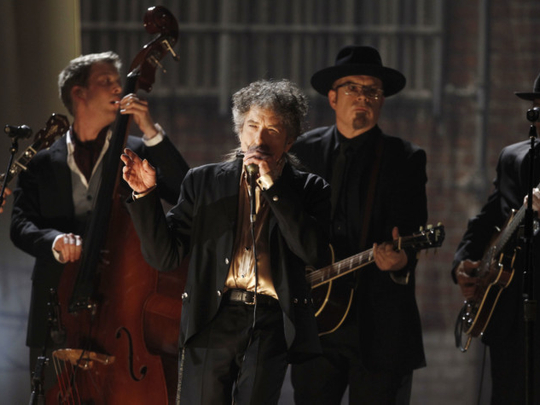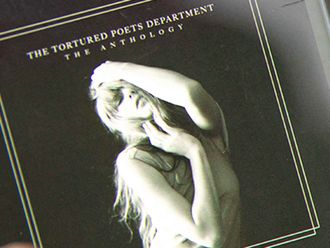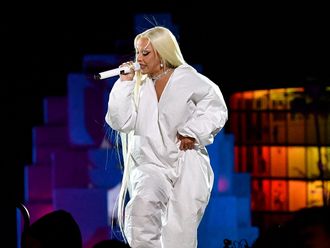
If there was ever a time in the last half-century that’s come close to mirroring the social upheaval of the US in the 1960s, it’s now.
Think of the protests over institutional racism brought on by police shootings, the feminist issues revived on a national scale by sexual assault allegations against Donald Trump, the decade-plus conflicts overseas that have already taken thousands of American lives.
But Friday night at Desert Trip, the second round of a two-weekend music festival in Indio starring the most influential artists of ’60s counterculture, there was little if any of that urgency in performances by the Rolling Stones and Bob Dylan.
Instead they stayed safely rooted in nostalgia, delivering well-executed sets while doing exactly what they railed against in their youth: fostering complacency by sticking to a well-worn script.
Dressed in a bright red and electric blue shirt, Mick Jagger strutted across the stage, clapping and jumping frenetically as he and the rest of the Stones turned the foreboding Paint It Black into an almost cheery number.
And Dylan, who’d just won the Nobel Prize for literature a day earlier, moved silently between originals such as Tangled Up in Blue and a cover of a tune made famous by Frank Sinatra, delivering a smooth, steady, ire-free set.
They gave the crowd what they wanted, it seemed. Fans who made the trek to the desert venue (which is also home to the Coachella Valley Music and Arts Festival) and paid $699 (Dh2,566) for seating or $199 to sit on the grass appeared content just to witness all of their musical heroes in one place — one-stop shopping for the Woodstock generation. The rest of the weekend’s line-up included Paul McCartney, Neil Young, Roger Waters and The Who.
“God, he’s 75 and he still sounds this good?!” yelled one silver-haired attendee to his friend as Jagger, 73, performed Tumbling Dice.
The grounds were as comfortable as the artist’s sets. Those who could afford it payed $179 for a “culinary experience” that offered food by name chefs; others sipped $13 cups of pilsner in the beer gardens or shopped at merchandise booths that included $70 Macca hoodies and $25 Desert Trip canvas shopping totes.
The world outside was just that — outside.
Escapism and immediate gratification, of course, are core components in pop and rock music, and that was true in the 1960s as well. But what made the acts on Desert Trip the legends they are today was an iconoclastic approach that wasn’t simply about a generational divide; their music captured the fears, hopes and confusion of a culture on the precipice of change.
We’re there again today, and the music they made back then — Street Fighting Man, The Times They Are a-Changin’ — couldn’t be more relevant.
But rather than make that connection on Friday with comments from the stage or a revived urgency in their music that one could just feel (no new lyrics required), it was about enjoying the familiar — much of it in songs whose meanings have become watered down by radio repetition or buried in historical reverence.
If the first weekend of the festival was any indication, the repeating roster of rock greats this weekend will leave all the political stuff up to Waters, who plays Sunday.
On Friday, Jagger instead chose to riff on the fact that the average age of the headliners at the fest is 72, thus the nickname Oldchella. It’s the “Catch ‘Em Before They Croak” tour, he said. Funny — and sad — for fans and the bands they love.
The world is still theirs to fight for, and their music still has a place in that fight. But only if they’re willing to sacrifice nostalgic comforts for a bit of modern-day tumult.












